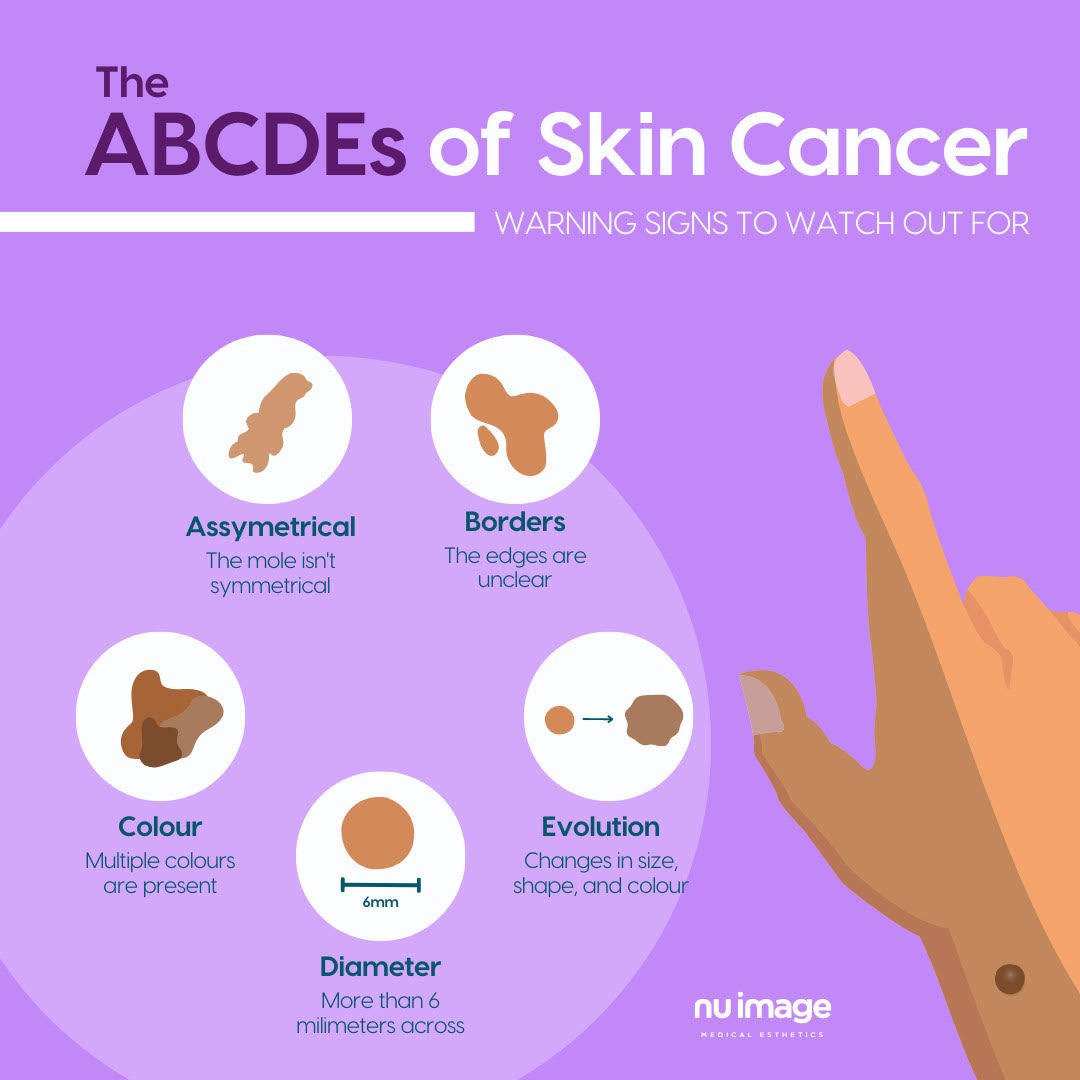Sun Safety 101: What I Learned After My Skin Cancer Diagnosis
Another hot Saskatchewan summer means another season filled with lots of time outside. May marks Skin Cancer Awareness Month, so it’s the perfect time to reflect on the importance of being vigilant in the sun and sun safety.
Janice Nuttall is a retired Registered Nurse, mom, wife and skin cancer survivor. Eight years ago, Janice was diagnosed with Basal Cell Carcinoma and then with Squamous Cell Carcinoma, both non-melanoma skin cancers. Non-melanoma skin cancer is the most common cancer diagnosed in Canadians, so we asked Janice about her experience and to share her takeaways from this life-changing experience. What follows is Janice’s first-hand experience and story.
As a Registered Nurse, I worked at the hospital in an acute care setting for almost 40 years, and during that time, I started working at Nu Image. Working at Nu Image brought me a whole new perspective on nursing and skin. I’m now such an advocate for myself since learning more about my skin and other people's skin.
My first notice of abnormalities on my skin was about eight years ago. I had a few red spots—one on my left forearm and the other on my right upper arm. They weren’t the typical brown keratosis look with asymmetrical borders that we generally see as warning signs to get checked out. They just looked like dry spots. When I first went to my family doctor, I asked her for a referral, but she didn’t think the areas looked like anything, so she said no to my request. But being who I am, I decided I would not take that as the final answer, so I sought another opinion and then got the referral to a dermatologist. The dermatologist took a biopsy of the one on my upper arm because it was a bit bigger, and it came back with Basal Cell Carcinoma (BCC), a non-melanoma skin cancer. I know that BCC is the least serious of skin cancers, but it still needed to be treated. So, I treated it for a few months, and I left it at that once it was gone. I decided not to do further follow-ups or see my dermatologist again, which was a big mistake.
Five years went by, and I found another spot. I had to return to my family doctor and request another referral. Another two and half years passed, and another site had appeared by the time I saw a dermatologist. Because of my previous diagnosis, the doctor decided not to biopsy it and instead just set a date to remove them. Once removed, the pathology report returned with Squamous Cell Carcinoma (SCC)—more severe than BCC.
At the time of publishing this, I am skin cancer free and remain a staunch fighter for my health, but I wanted to share my biggest takeaways from this experience:
Be your own best advocate by asking questions and getting informed about your body. Check out your skin; what are you concerned about? Check for spots, and if something looks unusual, take a photo or make a note and see a professional.
Wear sunscreen all the time, every day—not just in the summer or when it’s sunny out. A few of my favourites are the EltaMD UV Clear Broad-Spectrum SPF 46 and ZO Daily Sheer SPF 50.
Always, ALWAYS be sun safe! Wear sunscreen, wear a hat, find shade and protect yourself. Your skin is your biggest organ, which means it needs lots of love, care and attention—be good to it!
Being diagnosed with BCC and SCC was a life-changing experience for me. By sharing my story and advocating for sun safety, I want to help others understand the importance of caring for their skin and encourage them to take a proactive approach to their health. It's not just about preventing skin cancer; it's about living a healthy and happy life. Start today and make sun safety a priority in your life.
As May marks both Melanoma and Skin Cancer Awareness Month, I wanted to share my own experience with skin cancer but also bring light to the severity of Melanoma. My cousin, Terri Germaine, is a metastatic Melanoma survivor and advocate for sun safety. You can listen to her story here and then learn more about the various initiatives Save Your Skin Foundation (SYSF) offers to increase awareness of the dangerous disease.


